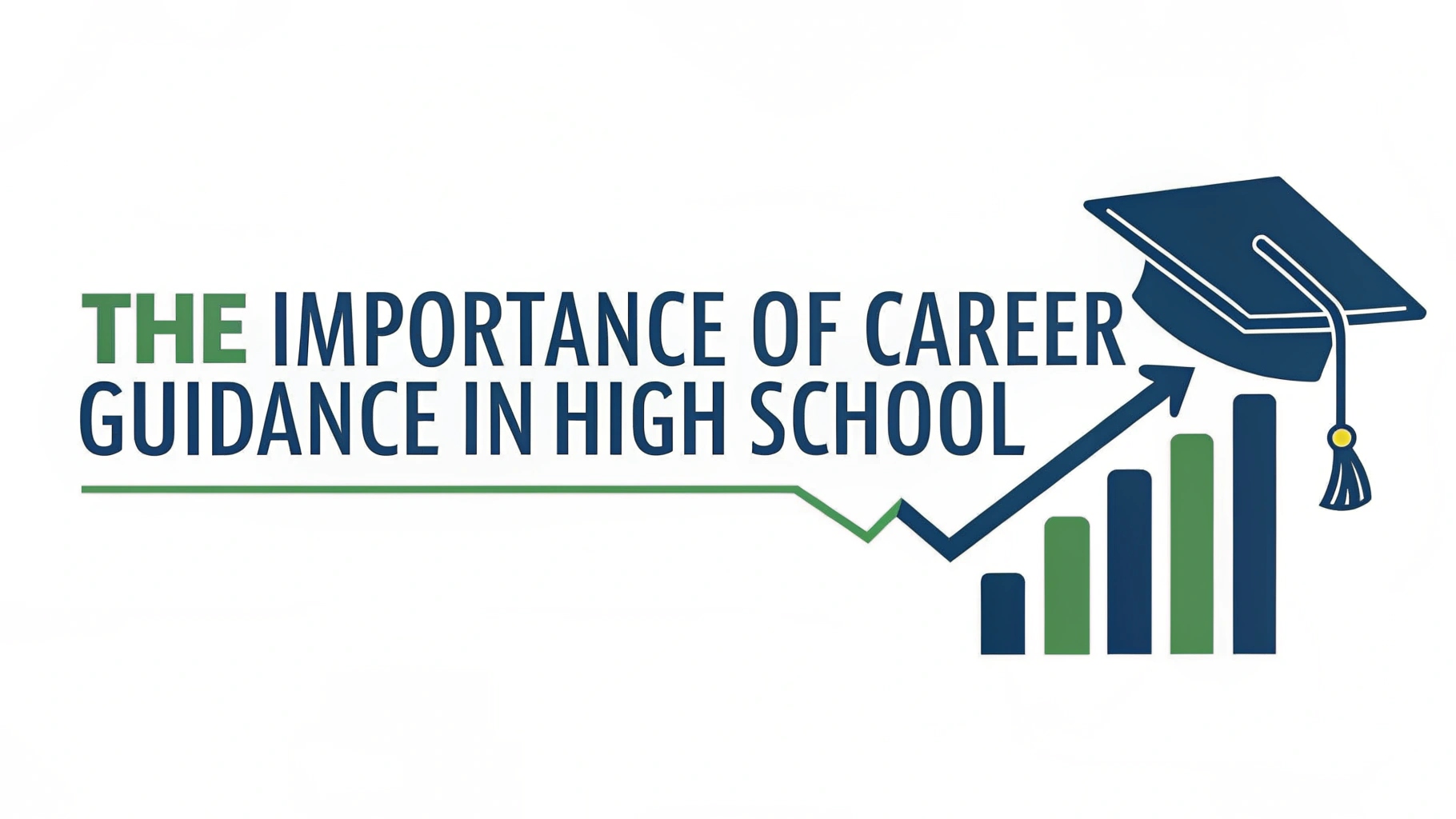The Importance of Career Guidance in High School

Choosing a career path is one of the most significant decisions a young person will make in their lifetime. For high school learners, this choice can feel daunting, confusing, and overwhelming. Without proper support, many students may make uninformed decisions that affect their future education and employment opportunities.
This is where career guidance in high school plays a crucial role. It provides learners with the knowledge, tools, and support needed to explore career options, understand their interests and strengths, and make well-informed choices about their futures.
In this blog post, we explore why career guidance in high school is so important and how it benefits learners, parents, schools, and society as a whole.
What Is Career Guidance?
Career guidance is a process that helps individuals understand themselves and the world of work to make career, educational, and life decisions. In a high school context, it involves:
-
Assessing learners’ interests, skills, and values
-
Providing information on various career paths and industries
-
Assisting with subject choices aligned with career goals
-
Offering advice on further education, bursaries, and funding
-
Supporting learners through the transition from school to tertiary education or employment
Why Is Career Guidance Important in High School?
1. Helps Learners Make Informed Decisions
High school learners face many choices: which subjects to take, whether to study further, what careers to consider. Career guidance equips students with accurate and relevant information about different fields, qualification requirements, and job prospects. This enables them to choose subjects and career paths that match their interests and abilities.
2. Increases Motivation and Academic Performance
When learners understand the purpose behind their studies and see a clear connection to future goals, they are more motivated to work hard and succeed. Career guidance helps students see the bigger picture, which can boost their academic performance and reduce dropout rates.
3. Reduces Anxiety and Uncertainty
The transition from high school to adulthood is a stressful time. Many learners feel unsure about their futures, which can lead to anxiety and confusion. Career guidance provides reassurance and clarity, helping students develop realistic plans and build confidence in their choices.
4. Supports Subject and Career Alignment
Choosing subjects without guidance can limit future opportunities. For example, a learner interested in engineering needs to focus on mathematics and physical sciences. Career guidance ensures that learners select subjects that keep their options open and align with their career aspirations.
5. Opens Access to Financial Aid and Further Education
Navigating bursaries, scholarships, and funding opportunities can be overwhelming. Career guidance counselors can assist learners in identifying and applying for financial support, making higher education more accessible, especially for those from disadvantaged backgrounds.
6. Encourages Self-Awareness and Personal Development
Career guidance encourages learners to reflect on their strengths, weaknesses, interests, and values. This self-awareness is crucial for personal growth and helps students develop skills such as decision-making, goal-setting, and resilience.
7. Addresses Youth Unemployment and Skills Shortages
South Africa faces high youth unemployment and critical skills shortages in many sectors. Early career guidance helps learners enter fields with better employment prospects and prepares them to meet industry demands, contributing to economic growth.
How Effective Career Guidance Is Delivered in High Schools
1. Qualified Career Counselors
Schools should have trained career counselors who understand local labour markets, educational pathways, and learner needs. These counselors provide individual or group sessions tailored to learners’ interests and challenges.
2. Career Workshops and Fairs
Organizing career days, workshops, and fairs exposes learners to various professions, universities, and training institutions. Interacting with professionals and alumni can inspire learners and provide practical insights.
3. Use of Career Assessment Tools
Psychometric tests and interest inventories help learners identify suitable career options based on their personality, skills, and preferences.
4. Collaboration with Parents and Teachers
Career guidance is most effective when parents and teachers are involved. They play a vital role in supporting learners’ decisions and encouraging their aspirations.
5. Access to Online Resources
Digital platforms offer career information, bursary listings, and application guidance. Schools should ensure learners have access to these tools, especially in rural or under-resourced areas.
Challenges in Providing Career Guidance in South Africa
Despite its importance, career guidance faces challenges:
-
Lack of trained counselors: Many schools, especially in rural areas, have no dedicated career guidance staff.
-
Limited resources: Insufficient career materials, internet access, and infrastructure hamper guidance delivery.
-
Large class sizes: Counselors often have too many learners to assist effectively.
-
Socioeconomic barriers: Poverty and lack of parental involvement can restrict learners’ access to information and opportunities.
Addressing these challenges requires government investment, partnerships with NGOs, and innovative approaches like mobile counseling units and online platforms.
Tips for Learners to Maximize Career Guidance Benefits
-
Be proactive: Ask questions, attend career events, and seek advice early.
-
Reflect on your interests and strengths: Use assessment tools honestly.
-
Discuss your plans with parents and teachers: Their support is invaluable.
-
Explore different career fields: Keep an open mind.
-
Research funding opportunities: Don’t let finances stop your dreams.
-
Set realistic goals and plan your steps: Break your path into manageable milestones.
Conclusion
Career guidance in high school is not just a luxury—it’s a necessity. It empowers learners to make informed choices, boosts motivation, reduces uncertainty, and prepares South Africa’s youth for a competitive job market. When schools, parents, and communities work together to provide quality career guidance, learners are more likely to succeed and contribute positively to society.
If you are a learner, parent, or educator looking for career guidance resources, be sure to connect with your school counselor, explore online tools, and engage in career development activities regularly.